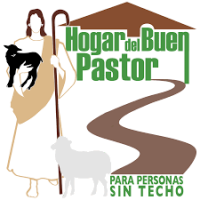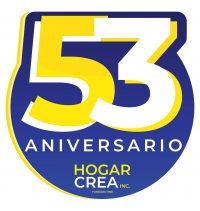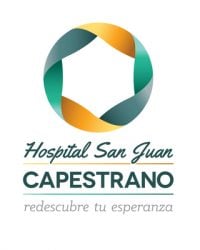
Hogar del Buen Pastor - San Juan
Drug Rehab Center in San Juan, Puerto Rico
- Opioid Addiction
- Dual Diagnosis
- Drug Addiction
- Alcoholism
Hogar del Buen Pastor - San Juan is a rehabilitation center that provides individualized care and evidence-based treatments for alcohol addiction, opioid addiction, and dual diagnosis.
About This Puerto Rico Facility
Hogar del Buen Pastor - San Juan, located in San Juan, Puerto Rico, is a treatment facility dedicated to helping individuals struggling with alcoholism, opioid addiction, dual diagnosis, and drug addiction. The facility offers a range of services to support individuals on their path to sobriety. With a focus on providing comprehensive care, Hogar del Buen Pastor - San Juan offers detoxification services, inpatient treatment, residential programs, and aftercare support to ensure a smooth and successful recovery journey. By providing a supportive and nurturing environment, Hogar del Buen Pastor - San Juan aims to assist individuals in breaking free from addiction and achieving long-term sobriety.
Hogar del Buen Pastor - San Juan employs various treatment methods and services to cater to the unique needs of each individual seeking help for addiction and substance abuse. These methods include but are not limited to counseling, therapy sessions, group support, and education on addiction and relapse prevention. The facility recognizes the importance of addressing underlying mental health issues and offers a dual diagnosis program for individuals facing co-occurring disorders. Additionally, Hogar del Buen Pastor - San Juan provides detox services to safely manage withdrawal symptoms and offers inpatient and residential treatment programs to create a supportive and structured environment for recovery. With a strong focus on aftercare support, the facility also assists individuals in transitioning back into their everyday lives through sober-living and halfway house programs.
Genders
Ages
Modality
Additional
Conditions and Issues Treated
Opioid addiction treatment should be done in a medically supervised drug rehab. Opioid addiction treatment will include detoxification and drug rehab counseling to help both the user and their loved ones learn how to live a successful sober lifestyle. Methadone, buprenorphine, and naltrexone are three medications that can help treat opioid addiction. Individual drug rehab counseling sessions can be helpful to discuss any questions or concerns with the drug treatment program.
Levels of Care Offered at Hogar del Buen Pastor - San Juan
This center offers a variety of custom treatment tailored to individual recovery. Currently available are Aftercare Support, Detox, Drug Rehab, Inpatient, Residential, Sober-Living / Half-Way, with additional therapies available as listed below.
Detoxification is the first step in drug addiction treatment. A controlled environment where symptoms can be managed with medication and close observation is provided by drug detoxification. Detoxification is an essential step in the recovery process, but it is also one of the most dangerous. Due to the potential danger, it’s critical to understand what detoxification is and how to complete it safely.
A detox program helps the person physically withdraw from drugs and helps them track their progress. So, suppose the person isn’t ready for sobriety (or relapses). In that case, the treatment professionals can catch it early and help re-orient them towards recovery.
Inpatient treatment is an option that provides addicts with a supportive environment in which they can stop using. This type of intensive care and supervision is appropriate for those who were unable to quit on their own or need more structure than they could get from outpatient treatment, such as the addict most in need of this level of care.
The goal of inpatient rehab is for the addict to stay focused on sobriety and remain free of mood altering substances. Inpatient treatment programs usually offer the following: detox, therapy groups, one-on-one counseling, medication management and aftercare planning.
Sober Living Homes are used in drug rehab to help former addicts maintain sobriety. The staff provides the residents with a safe and supportive living environment to learn how to live a sober life. The staff members also provide the residents with resources to equip themselves better to live a sober life. They also provide them with opportunities for exercise, many of which encourage learning coping mechanisms that will be helpful later on.
Residential treatment programs are those that offer housing and meals in addition to substance abuse treatment. Rehab facilities that offer residential treatment allow patients to focus solely on recovery, in an environment totally separate from their lives. Some rehab centers specialize in short-term residential treatment (a few days to a week or two), while others solely provide treatment on a long-term basis (several weeks to months). Some offer both, and tailor treatment to the patient’s individual requirements.
Aftercare is a part of drug rehabilitation. It is also known as “post-treatment support.” Aftercare programs are available for addicts after they complete drug rehab. It is often the final step in the recovery process. The goal of aftercare is to ensure that addicts maintain their achievements in rehab and do not relapse. Professionals generally provide aftercare (including addiction therapists, physicians, social workers, psychologists) and involve individual and group therapy sessions.
Therapies & Programs
Individual therapy is a critical component of addiction recovery. It allows the patients to go deep into their core issues and discover how to handle those problems better. Therapy can be conducted in individual sessions as well as group settings. In individual therapy for addiction, the patient meets with their therapist one-on-one to focus on the underlying issues. This allows patients to open up and discuss personal topics they may not feel comfortable discussing in a group setting. This type of therapy can help develop solutions specific to each patient, which helps speed up the recovery process.
Group therapy helps prevent addicts from feeling isolated or unique in their situation by offering a sense of comfort and fellowship. It also creates a forum for addicts to build their support systems and learn from each other. The group therapy sessions at Hogar del Buen Pastor - San Juan occur in a group setting rather than one-on-one to create a safer, controlled environment where addicts feel comfortable.
Trauma therapy helps people dealing with addiction by allowing them to confront the traumas of their past and move past them. It is important to note that trauma therapy should not be confused with PTSD (post-traumatic stress disorder) Rather, it is used to treat the effects of trauma, which are often at the root of addiction.
Cognitive Behavioral Therapy (CBT) is a common therapeutic approach to help drug addicts. It teaches addicts new ways of thinking and behaving so that they can avoid relapse. There are several forms of CBT used in drug rehabilitation centers.
Cognitive Restructuring helps addicts identify faulty, negative thinking so that they can work together with the therapist to find healthier ways of thinking, resulting in better decision-making.
Cognitive Behavioral Therapy for Addiction uses the principles of CBT to help treat addiction. It focuses on specific aspects of each person’s thinking, feeling, physiology, and behavior. It aims to identify specific problems in these areas and create a personalized treatment strategy.
Additional Details
Specifics, location, and helpful extra information.
San Juan, Puerto Rico 901 Phone Number(787) 721-8579 Meta DetailsUpdated November 25, 2023
Staff Verified
Patient Reviews
There are no reviews yet. Be the first one to write one.
San Juan, Puerto Rico Addiction Information
In San Juan, Puerto Rico, the drug addiction problem is relatively bad, with an estimated 9.5% of the population reportedly addicted to drugs. Cocaine is the most commonly abused drug in the city, followed by crack cocaine and marijuana. There are many different drug and alcohol treatment centers in San Juan, Puerto Rico. These facilities offer detox and counseling group therapy and outpatient rehabilitation services.
Treatment in Nearby Cities
- Luquillo, PR (25.6 mi.)
- Orocovis, PR (25.2 mi.)
- Canovanas, PR (14.6 mi.)
- Caguas, PR (15.9 mi.)
- Toa Baja, PR (11.1 mi.)
Centers near Hogar del Buen Pastor - San Juan


The facility name, logo and brand are the property and registered trademarks of Hogar del Buen Pastor - San Juan, and are being used for identification and informational purposes only. Use of these names, logos and brands shall not imply endorsement. RehabNow.org is not affiliated with or sponsored by Hogar del Buen Pastor - San Juan.

